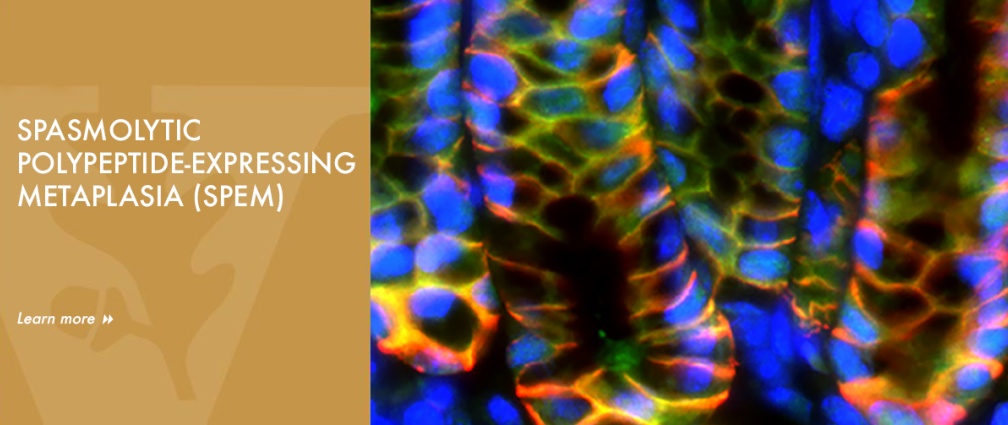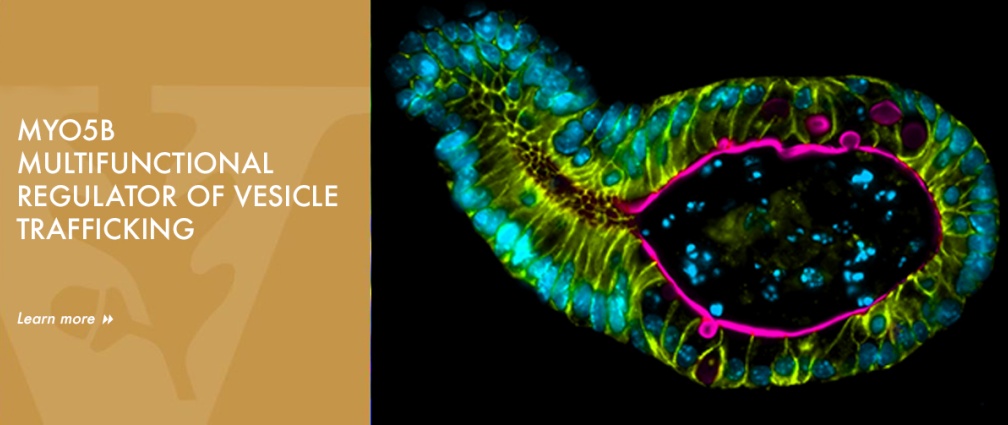GOLDENRING LABORATORY RESEARCH
The study and origin of pre-neoplastic metaplasia in the stomach
The Goldenring and Epithelial Biology Center (EBC Lab) studies of pre-neoplastic changes related to gastric cancer and the roles of mucosal stem cells in giving rise to metaplasia and cancer. Dr. Goldenring first described Spasmolytic Polypeptide-expressing Metaplasia (SPEM) in both mouse models and humans in 1999. While those initial studies were controversial, work over the past 5 years has now established the validity of the concept that SPEM is present in many rodent models of parietal cell loss and in humans. The Goldenring lab has redefined concepts of the origin of metaplasia and altered views of the plasticity of differentiated cells by demonstrating, using lineage mapping techniques.
The EBC Lab team brings together investigators from multiple disciplines to address complex issues related to the physiology and pathophysiology of epithelial cells. Major areas of investigation include establishment and maintenance of epithelial cell polarity, regulation of vesicle trafficking and cytoskeletal organization, epithelial defense against infectious agents and the identification and characterization of adult epithelial stem cell populations.
Our bodily organs are lined by sheets of polarizing epithelial cells that provide a vital layer of protection against noxious agents in our external and internal environment. Mutations in epithelial cells result in carcinomas that make up more than 90% of all cancers.
A major challenge going forward is to understand how normal and mutant gene products function. By studying polarizing epithelial cells in vitro and in vivo and exploiting unique capabilities developed within the EBC, we are poised to aggressively advance our stated mission.

